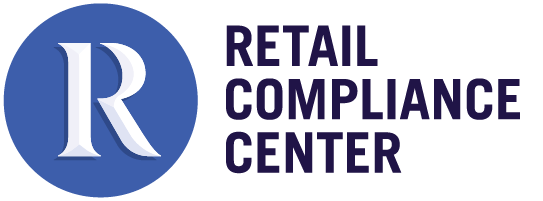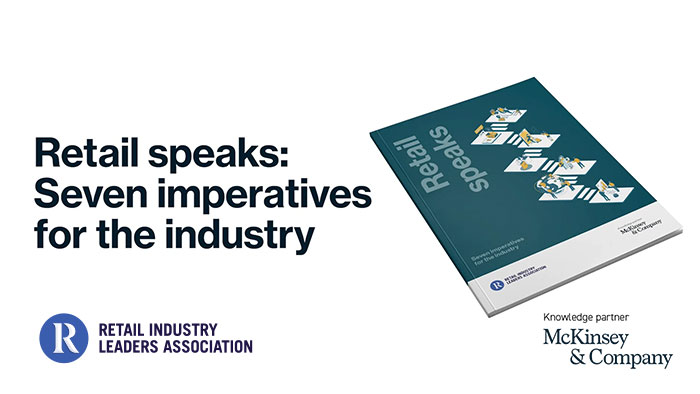COVID-19 FAQs on Medical Waste for Retail Facilities
- 04/22/2020
COVID-19 is changing retail operations with respect to additional cleaning and disinfection requirements, as well as new waste streams including PPEs such as discarded masks and gloves from staff and the public. This FAQ provides information on what is considered Regulated Medical Waste and requirements for these new waste streams.
Frequently Asked Questions
- What is a regulated medical waste (RMW)?
- Does OSHA have any special requirements for waste that may be contaminated with COVID-19?
- Does waste from general decontamination or cleaning of a workplace or public facility need to be treated as regulated medical waste?
- Does waste from the decontamination or cleaning of areas where a known or suspected COVID-19 individual was present need to be treated as regulated medical waste?
- Do gloves or masks thrown into the trash by customers need to be treated as regulated medical waste?
- How do I know if a disinfectant chemical is considered a hazardous waste?
- Do states have specific requirements for handling waste from the decontamination or cleaning of areas where a known or suspected COVID-19 individual?
- How should empty containers of concentrated decontamination or disinfecting chemicals be treated?
- How should full or partially full unused or leftover containers of concentrated decontamination or disinfecting chemicals be treated?
What is a regulated medical waste (RMW)?
RMW is waste, primarily from a healthcare setting, that is contaminated with blood, body fluids or other potentially infectious material and poses a significant risk of transmitting infection. Most regulations around RMW are at the state rather than the federal level and there is no explicit federal definition of medical waste. This waste may also be referred to as infectious or biomedical waste. For more information visit the Healthcare Environmental Resource Center.
Does OSHA have any special requirements for waste that may be contaminated with COVID-19?
No, according to OSHA, current waste management guidelines can be followed. For more information visit OSHA’s COVID-19 page.
Does waste from general decontamination or cleaning of a workplace or public facility need to be treated as regulated medical waste?
No. Used PPE, clean-up rags and wipes and other debris with a non-hazardous disinfectant chemical can be treated as a solid waste. However, if the waste disinfectant chemical is considered a hazardous waste (federal or state), then materials contaminated with the hazardous disinfecting chemicals must be handled as a hazardous waste.
Does waste from the decontamination or cleaning of areas where a known or suspected COVID-19 individual was present need to be treated as regulated medical waste?
No. Waste such as used PPE, clean-up rags and wipes, and other debris with a non-hazardous disinfectant chemical can be treated as solid waste (assuming that it is not lab related or contains sharps). If disinfecting chemicals are determined to be RCRA or state-regulated hazardous waste, the waste should be handled as hazardous waste.
Do gloves or masks thrown into the trash by customers need to be treated as regulated medical waste?
No. Used PPE from customers can be treated as solid waste.
How do I know if a disinfectant chemical is considered a hazardous waste?
There is no single list of disinfectants that may be considered hazardous waste. A waste determination needs to be conducted on any chemical waste. Resources include the EPA’s website defining waste characterization at this link. States may have additional criteria for hazardous waste and retailers can find links to the State Environmental Agency websites here.
Do states have specific requirements for handling waste from the decontamination or cleaning of areas where a known or suspected COVID-19 individual?
States may have their own requirements or guidance on waste related to COVID-19. States may have specific guidance for COVID-19 medical waste, i.e., regulated medical waste and also guidance for waste from businesses. Retailers should frequently check the State’s Public Health Agency and Environmental Agency websites for updates on waste management protocols.
How should empty containers of concentrated decontamination or disinfecting chemicals be treated?
Empty containers that previously held concentrated decontamination or disinfecting chemicals can be treated as solid waste, if the container meets state and federal definitions of empty.
How should full or partially full unused or leftover containers of concentrated decontamination or disinfecting chemicals be treated?
Depending on the specific chemical, this could either be a solid waste or hazardous waste. Generators must evaluate chemicals to determine if they are considered RCRA or state hazardous waste.
Special Thanks to:
The information and content provided herein regarding COVID-19 (the “Materials”) are being distributed for general informational only and RILA, by means of its distribution of the Materials, is not rendering legal or professional advice or services. The Materials are not intended to be an exhaustive explanation of this topic and RILA makes no representation or warranty as to the accuracy of the Materials. Prior to taking any action in reliance of Materials that may affect your business, you should consult a qualified professional advisor. RILA shall not be responsible for any loss or damages from reliance or use of these Materials.

